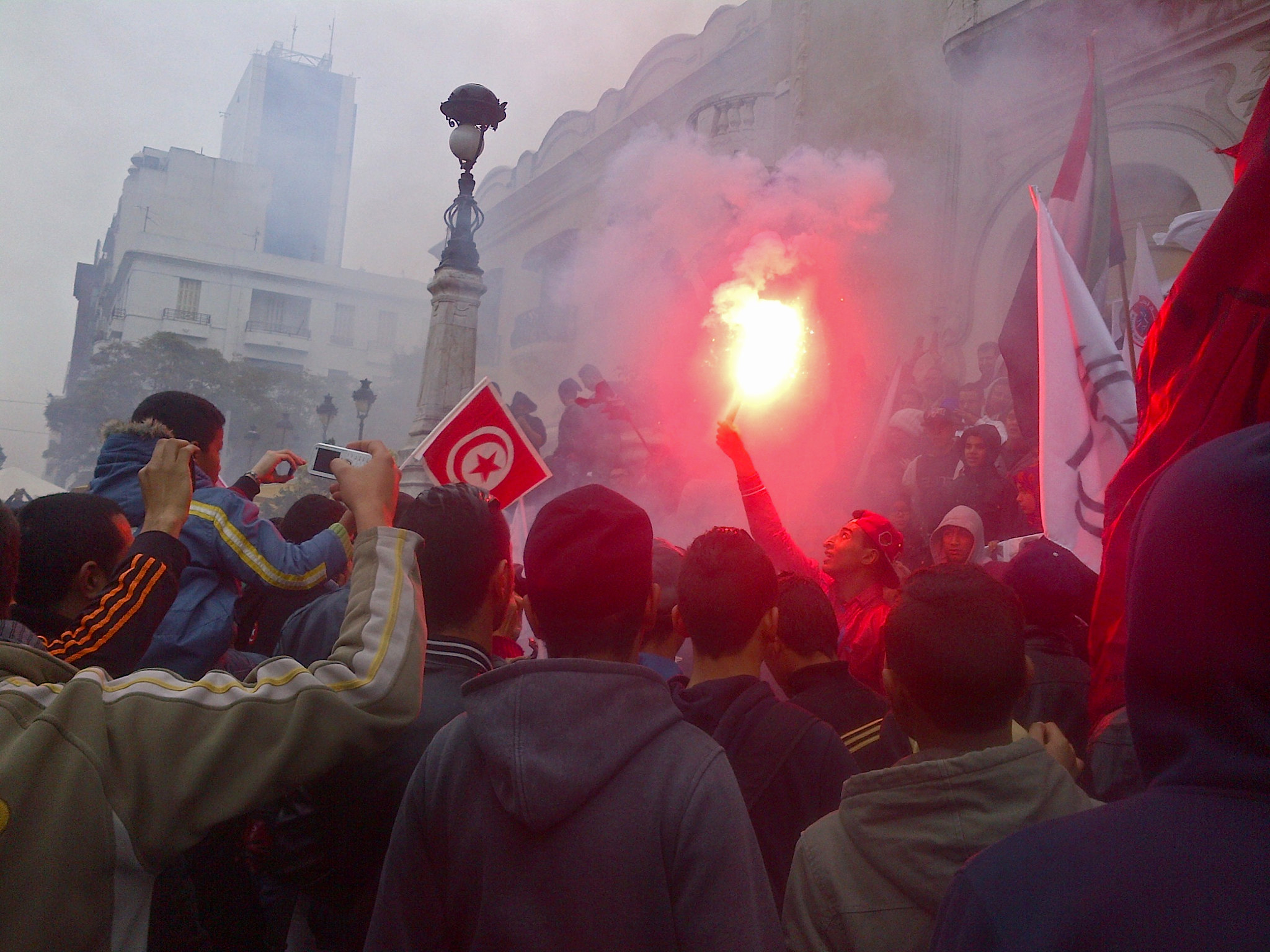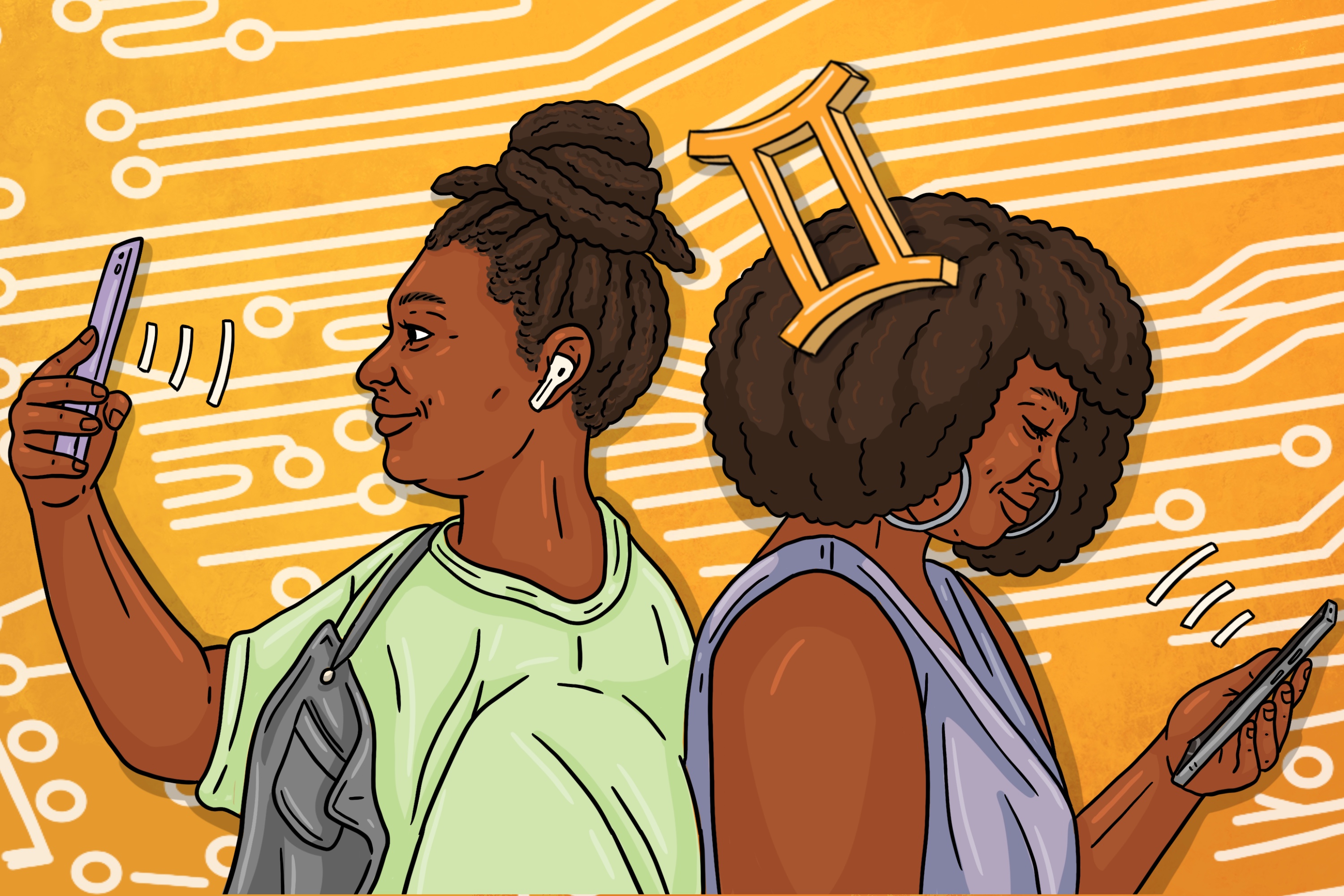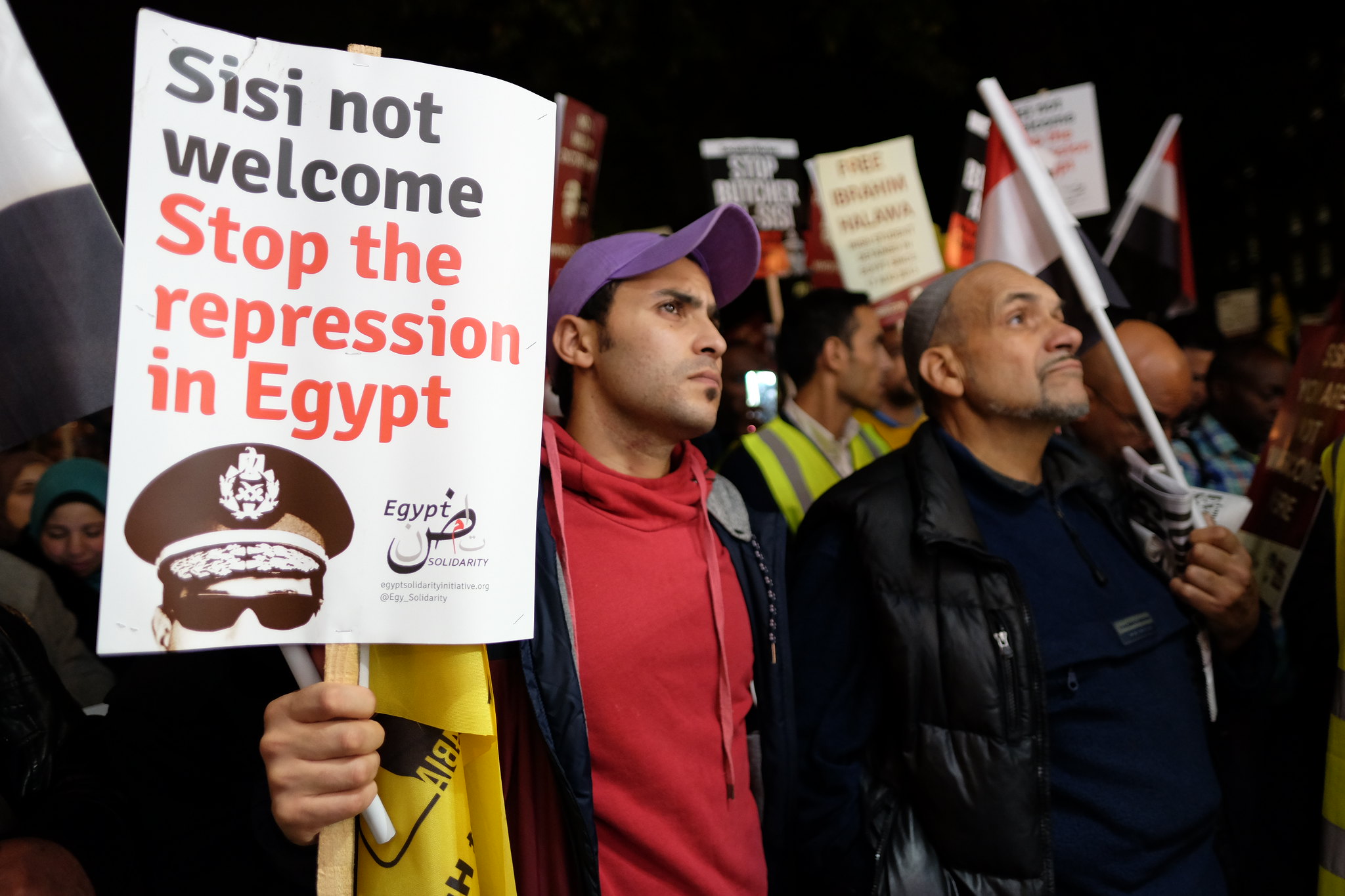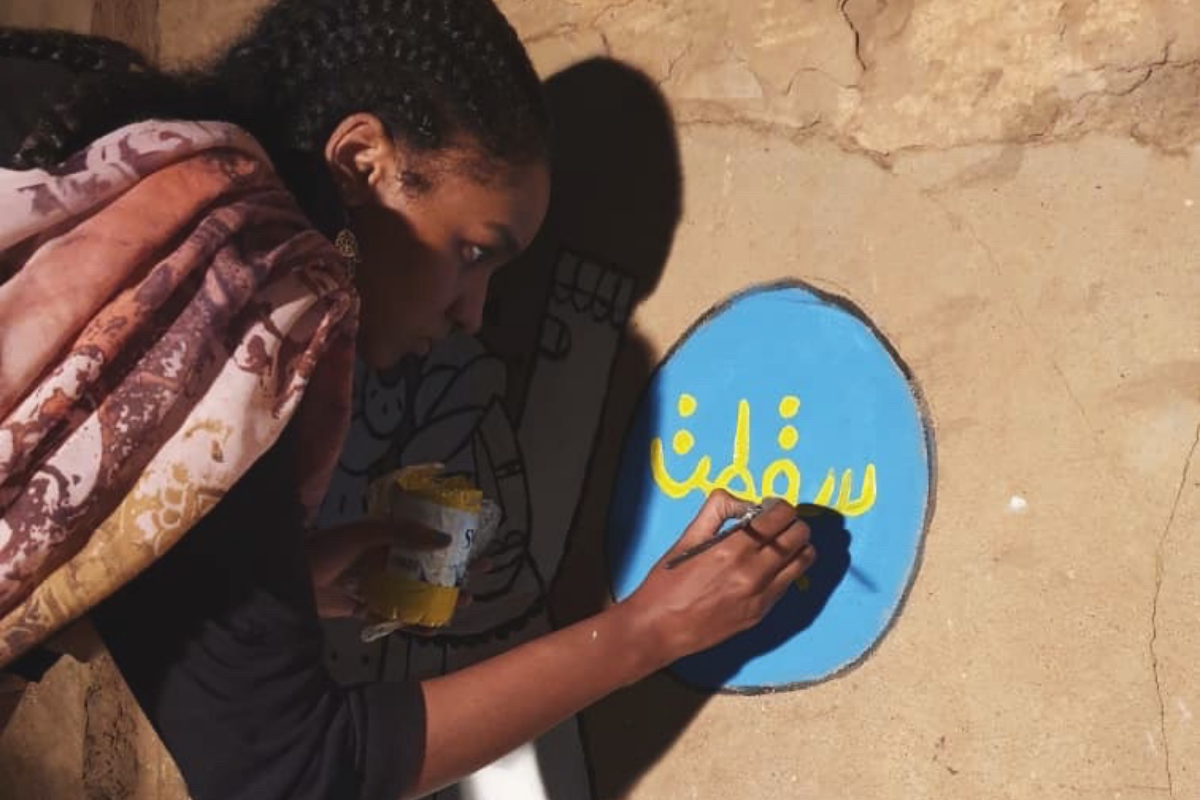
Can this week’s elections in Tunisia continue the revolutionary dream of 2011?
Lina Ben Mhenni
15 Sep 2019
Photography via Flickr / Magharebia
Eight years ago, Tunisia stunned the world with an atypical and (almost) peaceful revolution. Weapons were only used by the armed forces, while protesters held sit-ins and non-violent demonstrations. When the media in Tunisia was still under the monopoly of the regime, I travelled the country, reporting as a blogger and citizen. I found that a revolutionary dream, shared by the majority of people, was taking hold. By 14 January 2011, President Ben Ali, was forced to step down after 23 years in power as a dictator.
Now, we could be on the cusp of another new era. Over the past two weeks, Tunisians have gathered in coffee shops, bars, and homes to watch the first-ever presidential debates in the history of the country. These scenes are reminiscent of when a football match is being played by the national team: people gathering, cheering, laughing, shouting and commenting on the action – in this case, the candidates’ answers rather than goals and passes. It has conveyed the idea that people have a big interest in presidential elections and politics. But to what extent is this true? Why are these elections so interesting, and why are they such a big deal?
To answer these questions, we need to understand the context in which the elections are taking place and the candidates taking part in the race. Are the elections a true reflection of the will of Tunisians, or are they a tepid climb down from the dream of 2011?
What has been the lead-up to the 2019 elections?
In 2013, the activities of the Constituent Assembly, the body responsible for forming the new Tunisian constitution after the fall of President Ben Ali, were dominated by an Islamist party tied to the ideology of the Muslim Brotherhood, the Ennahdha Party. They tried to impose the establishment of religious law as the main law in the country. Violent, bloody clashes were also recorded in the same year, including the assassination of the two leftist political leaders.
Yet again, peaceful solutions were sought. Tunisians took to the streets to show their anger and block attempts to violate the civil state by imposing Sharia. It was these demonstrations that led to the initiation of the Tunisian National Dialogue Quartet, which played a key role in mediating peaceful political compromise and spared the country a blood bath. The coalition subsequently received the Nobel Peace Prize in 2014.
The presidential elections, scheduled for this Sunday, were decided in an almost similar context, following the death of incumbent President Beji Caid Essebsi on 25 July. When the world thought Tunisians would fight for power, instead we proved our willingness to preserve our country and fragile democracy and hold an early election.
Has the revolution been forgotten?
However, it would also be inaccurate to believe that social peace is completely stable and that political consensus will always prevail. The majority of the goals and demands of the revolution, which can be summarised in the most-shouted slogan of the revolution – “employment, freedom and dignity!” – have not been fulfilled. The different governments that have ruled Tunisia after the departure of Ben Ali have not shown willingness to fulfil these goals. Instead, social and economic demonstrations and sit-ins have erupted in different areas of the country
Despite improvements in individual and collective freedoms and the flourishing of civil society, many problems continue to plague the country, such as corruption. While the Tunisian constitution is considered to be modern, other laws have not been updated in harmony with its spirit. The police still enact violence and torture with impunity. Tunisians succeeded in obtaining the freedom of expression, but the door has been opened for some media companies to use their TV stations, radio channels, and newspapers to manipulate the electorate and campaign for political parties. This is the context that the presidential elections will take place in.
Meet the candidates
In total, 26 candidates are running for the elections; an enormous number for a country which has been used to one party and one dictator. In a situation which felt like a fantasy, nearly 100 women and men rushed to present their candidature for the presidential elections. This has stirred up mixed responses: on the one hand, some people have seen the variety of candidates as proof of a commitment to democracy, but on the other hand, some consider it to be a destabilising factor for voters.
After the announcement of some candidacies, in particular, much ink has been spilt. Lawyer and human rights activist Mounir Baatour is the first openly gay person to present candidacy in an Arab country, where homosexuality is criminalised by law. Despite international support and media interest, he is a controversial figure. Most LGBQTI+ organisations and individuals in Tunisia have not supported him and in a petition published by a group of 18 LGBTQI+ organisations, it’s claimed that Mounir represents a threat to the community because of the outing strategy he adopts with Association Shams, the organisation he runs. Association Shams campaigns for the decriminalisation of homosexuality but, according to the petition, its strategy does not respect individuals’ freedom and puts their life in danger. In 2013, he was also convicted of “sodomy” with a 17-year-old student.
Mounir is not the only candidate who seems to have a murky history. Another candidate, Nabil Karoui, is leading his election campaign from behind bars. A media magnate and the owner of a private TV channel and now the president of the freshly created political party Kalb Tounes (the heart of Tunisia), was arrested in late August over allegations of money laundering and tax evasion. Whereas some see his arrest as legitimate, others strongly defended him and view his arrest as score-settling – plotted by the present Prime Minister Youssef Chahed, who is also a candidate. Since the announcement of his candidacy, Nabil has been leading the polls.
The two women running for election are Abir Moussi and Selma Elloumi. Abir is the president of the Free Destourian Party and is linked to former dictator Ben Ali. Salma, meanwhile, is a prominent businesswoman and the former Minister of Tourism and Handicrafts. Both of their chances are limited – Tunisia is still a patriarchal society. Women are rarely present in decision-making posts. In 2014, the judge Kalthoum Kannou was the first woman candidate for the presidential elections and received limited support.
What results can we expect?
The first question is how many voters among the 7 million registered voters will vote? It’s true that nearly 1.5 million voters (mostly young people) are newcomers who registered between February to mid-June 2019, but the high number of presidential candidates and the quality of the debates that are taking place will be decisive in defining the level of participation.
It is hard to know what will happen next. When you ask young people about their engagement with the elections the answers are multifaceted. On the one hand, some young people are boycotting the elections, as they have lost all hope in the political class in Tunisia. On the other hand, some enthusiastic young people are actively participating in political debates and campaigns. Either way, it is frustrating that in a country whose revolution was mainly accomplished by young people and women, we are not seeing enough women and young men running in the elections.
When it comes to the outcome, nothing can be predicted with such a huge number of candidates. Are these elections are going to change the destiny of Tunisians? It remains to be seen whether we will be able to fulfil our revolution goals.









